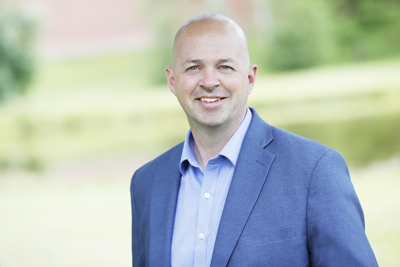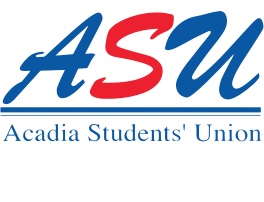Photo by Daniel St. Louis
In July of 2023, Acadia University announced the appointment of its next President: Dr. Jeff Hennessy.
This will begin a six-year term which will see him become Acadia’s 17th President. He will follow Dr. Peter Ricketts, who was Acadia’s President from 2017-2023, and Mr. Ray Ivany, who served as the interim President until August 31, 2023.
Hennessy served as the Dean of Arts at Acadia between 2014-2019, and previous to that the Director of the School of Music from 2007-2013. During his tenure, he spearheaded innovations in music curriculum. This successfully enlarged enrollment sizes by 30 percent. During his time as Dean of Arts, he led Acadia’s response to the Truth and Reconciliation Commission’s Call to Action. This would be key for developing Acadia’s decolonization strategies.
Dr. Hennesy comes from Mount Allison University, where he served as the interim President and Vice-Chancellor. During this time he would also chair the Maple League of Universities.
Dr. Hennessy has emerged as a champion of 21st-century liberal education, focusing on developing critical thinkers and leaders. A key part of his education philosophy is working together in harmony and collaboration.
Dr. Hennessy holds several academic accolades, including a Doctor of Philosophy from the University of Toronto, a Master of Arts from the University Of British Columbia, a Bachelor of Music from Acadia University, and a Bachelor of Science from Trent University.
The following is an interview with Dr. Jeff Hennesy.
MacIntyre:
Good afternoon. The first thing I would like to do is welcome you to Acadia. We are very excited for the future of our university. The first thing I would like to ask is what is your immediate message for the university?
Hennessy:
I am very excited to be back. Previously, I was at Acadia as the Music Director. I am looking at making the university experience as good as it can be for all of our students. I am looking forward to leading us into the future so that can be the case.
MacIntyre:
Love to hear that. Previous to Acadia, you served at Mount Allison as their Interim President and Vice-Chancellor. Something very interesting I saw about that university was their THRIVE program. THRIVE is a foundational year program that aims to set first-year students on the right path. I am wondering if there are any plans to set up a similar program at Acadia.
Hennessy:
Well, I think that would be a great thing to talk about. At Mount A. I was a part of setting that up with some funding from the government to help the university fund it. We worked with some terrific faculty members on developing it. A part of my job is to listen to what students and faculty want to do and then try to find ways to enable us to do that. If that is something that faculty and students are interested in here then I would certainly love to be part of that conversion.
MacIntyre:
Wonderful, I am from the Saint Margaret’s Bay region and I was extremely happy to see Acadia offer housing to residents being evacuated from Shelburne and Lockeport areas due to the June wildfires. Will Acadia continue to provide community support in a similar crisis?
Hennesy:
I can feel the weight of that impact. I think part of what Acadia is about is being good stewards and good contributors to our community. This includes responding to needs within the community. Our primary job is to educate students and do research. What goes along with that is being a public institution and an institution embedded into this community. We want to be good community partners and when crises occur we want to be there to pitch in with support.
MacIntyre:
Wonderful. Last question: for the future, what’s your message or vision going forward for Acadia?
Hennesy:
I am very interested in building up a community and a sense of direction. Championing the things that we do, ultimately, I would like to see us be the premier place to go to for liberal education that has a combination of traditional liberal arts programs and professional applied programs like we have. We can have small class sizes and high engagement in a beautiful setting. We can be the place to go in this country for that type of education. I think this is the best way to do undergraduate education programs. My job is to make sure we can thrive while doing this and that people know about it. Hopefully, we can make Acadia the place for students to come for this type of education.
This interview was recorded on Friday, September 8th, 2023.





